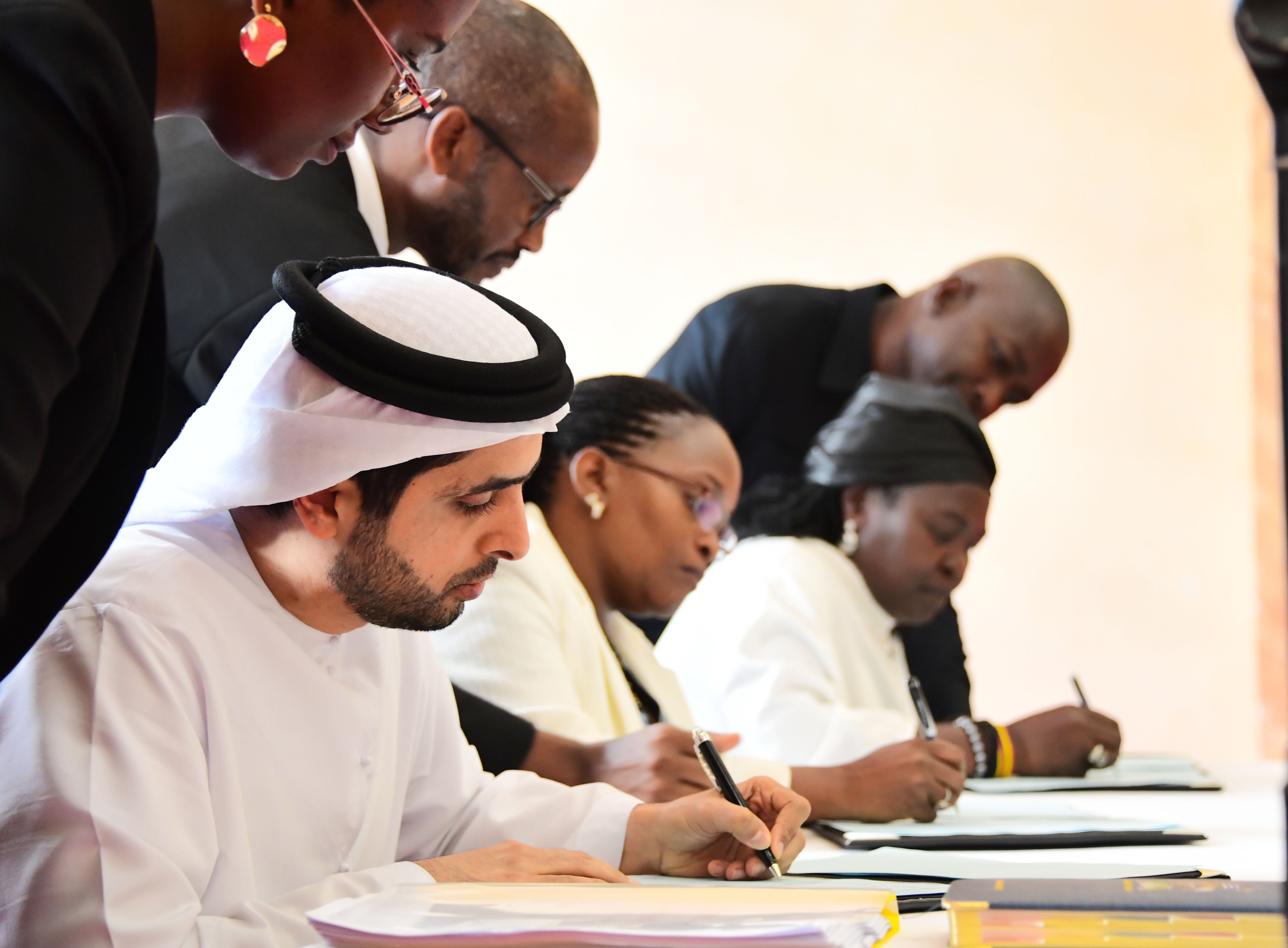
With the oil refinery now moving toward implementation, attention will turn to securing financing and finalising construction timelines.
Uanda has signed an implementation agreement for the construction of a crude oil refinery in Hoima District, a project that President Museveni described as a crucial step in the country’s industrial transformation.
The agreement, signed by Energy Minister Ruth Nankabirwa on behalf of the government, formalises Uganda’s partnership with Alpha MBM Investments LLC, a company based in the United Arab Emirates (UAE), to develop the 60,000-barrels-per-day facility.

President Museveni, who witnessed the signing, praised the involvement of the UAE investors, particularly Sheikh Mohammed Bin Maktoum, a member of rile Emirati royal family.
“The refinery is not just about fuel but also about Uganda producing and exporting refined products instead of importing them,” Museveni said.
“We must stop exporting raw materials and instead add value to everything we produce.”
Uganda’s refinery project has been a long-standing ambition, conceived as part of the country’s broader plan to maximise benefits from its oil resources discovered in 2006.
Initially, the government had engaged a consortium led by the US-based Albertine Graben Refinery Consortium (AGRC) for the refinery’s development.
However, challenges related to financing and final investment decisions caused delays, leading to a shift in approach.
The new deal with Alpha MBM Investments LLC signals fresh momentum for the project, which is expected to process crude from Uganda’s oil fields in the Albertine region.
“This is transformative for our economy, our people, and our future,” Minister Nankabirwa said.
The refinery will produce petrol, diesel, kerosene, and other petroleum products, reducing Uganda’s dependence on imports.
It aligns with the government’s strategy to integrate oil refining with industrialisation, creating a value-added petroleum sector rather than merely exporting crude.
Uganda currently relies on imported petroleum products through the port of Mombasa in Kenya, making fuel prices susceptible to external shocks.
The refinery is expected to enhance energy security and stabilise fuel prices while generating employment and investment opportunities in the downstream oil industry.
The signing also saw Uganda enter five additional agreements with UAE investors in various sectors, including aviation, logistics, digital land management, cargo storage, and a government digital payment system.
These deals reflect Uganda’s growing economic ties with the UAE, which has emerged as a key partner in infrastructure development.
With the oil refinery now moving toward implementation, attention will turn to securing financing and finalising construction timelines.
Once operational, the facility is projected to transform Uganda’s energy landscape and reduce reliance on foreign refined fuel supplies.
Source: APNews



















